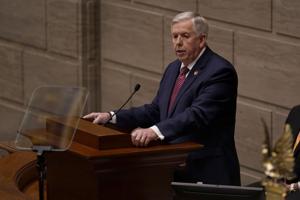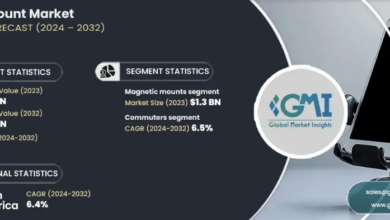Answers to questions about Missouri Legislature’s Medicaid expansion plan coming soon

(The Center Square) – After Missouri lawmakers return to Jefferson City from their mid-session spring break Monday, questions about how they will proceed with Medicaid expansion mandated by August’s adoption of Amendment 2 should find answers in ensuing weeks on chamber floors.
And there is fear the answers to those questions could reveal an effort to undermine Gov. Mike Parson’s pledge to uphold Amendment 2 vote despite his opposition to Medicaid expansion.
Parson’s $34.1 billion budget request sets the cost of Medicaid expansion at $1.9 billion, including $120 million in state general revenues, to expand coverage to approximately 275,000 uninsured Missourians.
On Feb. 1, however, House Budget Chair Rep. Cody Smith, R-Carthage, filed House Bill 20, which would segregate Medicaid expansion appropriations from other Medicaid spending bills and require it be separately approved.
Under HB 20, Missouri is contributing $103.5 million in general revenue and $51.5 million in other state funds to garner $1.4 billion in federal matching funds for a $1.6 billion Medicaid expansion, about $300 million below what Parson estimated.
Smith has not elaborated on the intent of the bill although in January he called Medicaid expansion under Amendment 2 “a knockout blow to the state budget.”
Whether HB 20 is part of a plan to get Medicaid expansion into court — a legal challenge against Amendment 2 failed — or just a way to highlight the spending, Rep. Peter Merideth, D-St. Louis, said requiring lawmakers approve funding for Medicaid expansion mandated by state voters creates potential for all sorts of legal problems and is unnecessary.
“It seems at the very least to be an effort to continue their message that Medicaid expansion is somehow bad for our state,” he said.
Even if lawmakers didn’t adopt HB 20, Medicaid expansion goes into effect July 1, Merideth said.
“The department would have to go forward with expansion anyway,” he said. “It will just mean we will have a massive supplemental (spending bill) we will have to do later.”
The Senate has not directly addressed Medicaid expansion as it awaits the House to pass along appropriations bills.
Senate Bill 1, filed by Sen. Dan Hegeman, R-Cosby, the Senate appropriations chair, would extend the Federal Reimbursement Allowance (FRA) for another year.
The FRA is primarily funded by state hospitals. MO HealthNet uses FRA funds to earn higher returns in federal matching dollars.
The FRA extensions will allow the Missouri Department of Health (DOH) to collect approximately $1.28 billion in Hospital Tax in Fiscal Year 2022 (FY22), which begins July 1, and in FY23. Hospital tax revenues will, in turn, draw about $2.391 billion in federal funds each year to the state.
Hegeman told the Missouri Independent that Smith’s HB 20 could be used to launch a legal challenge testing the constitutionality of Medicaid expansion.
“All of this convergence and conflict means there are lots of moving parts,” he said.
Amendment 2’s ballot language told voters Medicaid expansion could cost as much as $200 million a year in state general revenue or result in savings from the existing program of up to $1 billion annually. While the amendment mandated the state offer the coverage, it did not mandate how much to spend or from which funds it can use to do so.
While the Amendment 2 court challenge failed to get Medicaid expansion off the ballot, Hegeman said there’s still no answer to the question, “Is there a mandate to fully fund it?”
Disclaimer: This content is distributed by The Center Square



